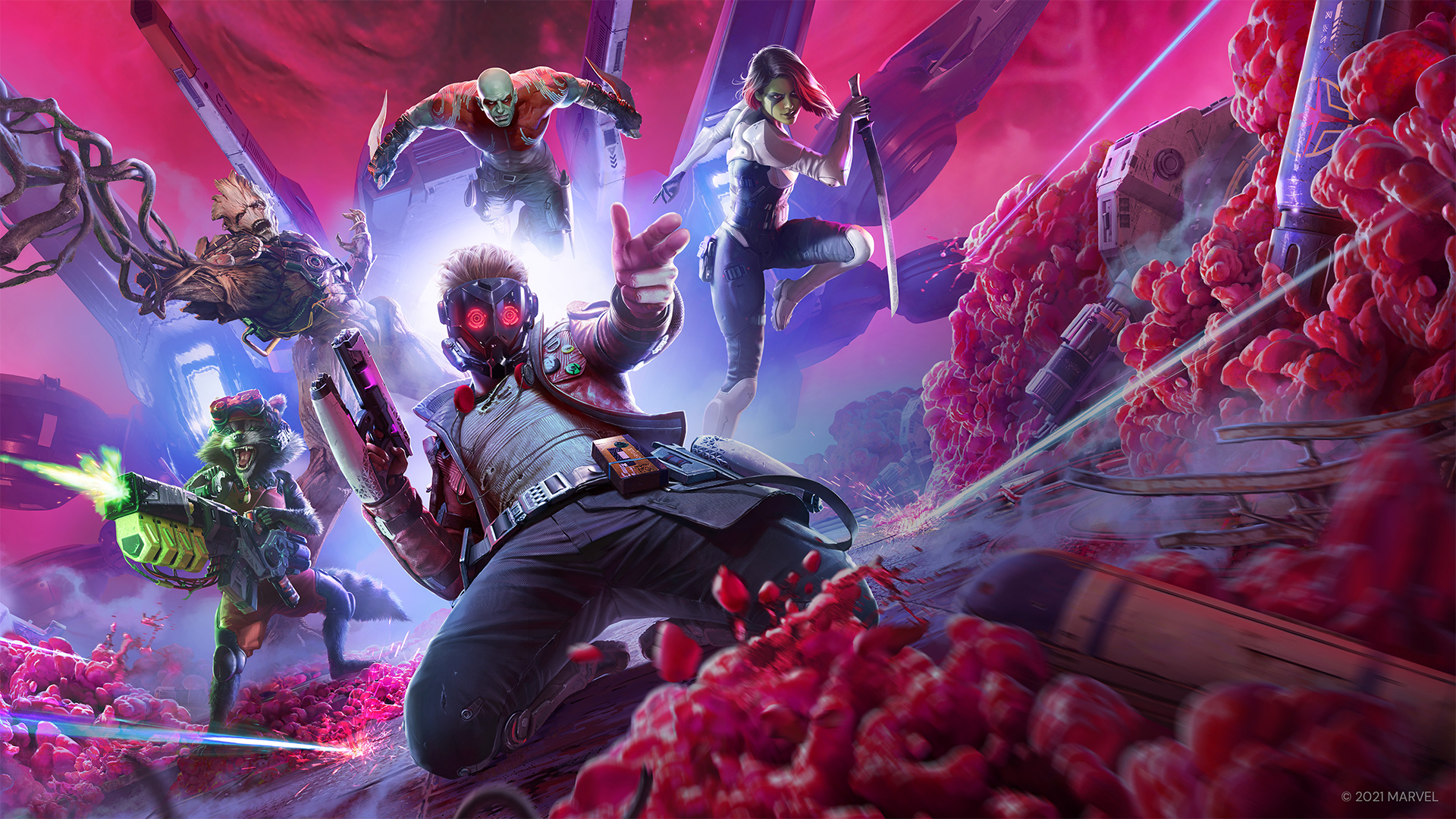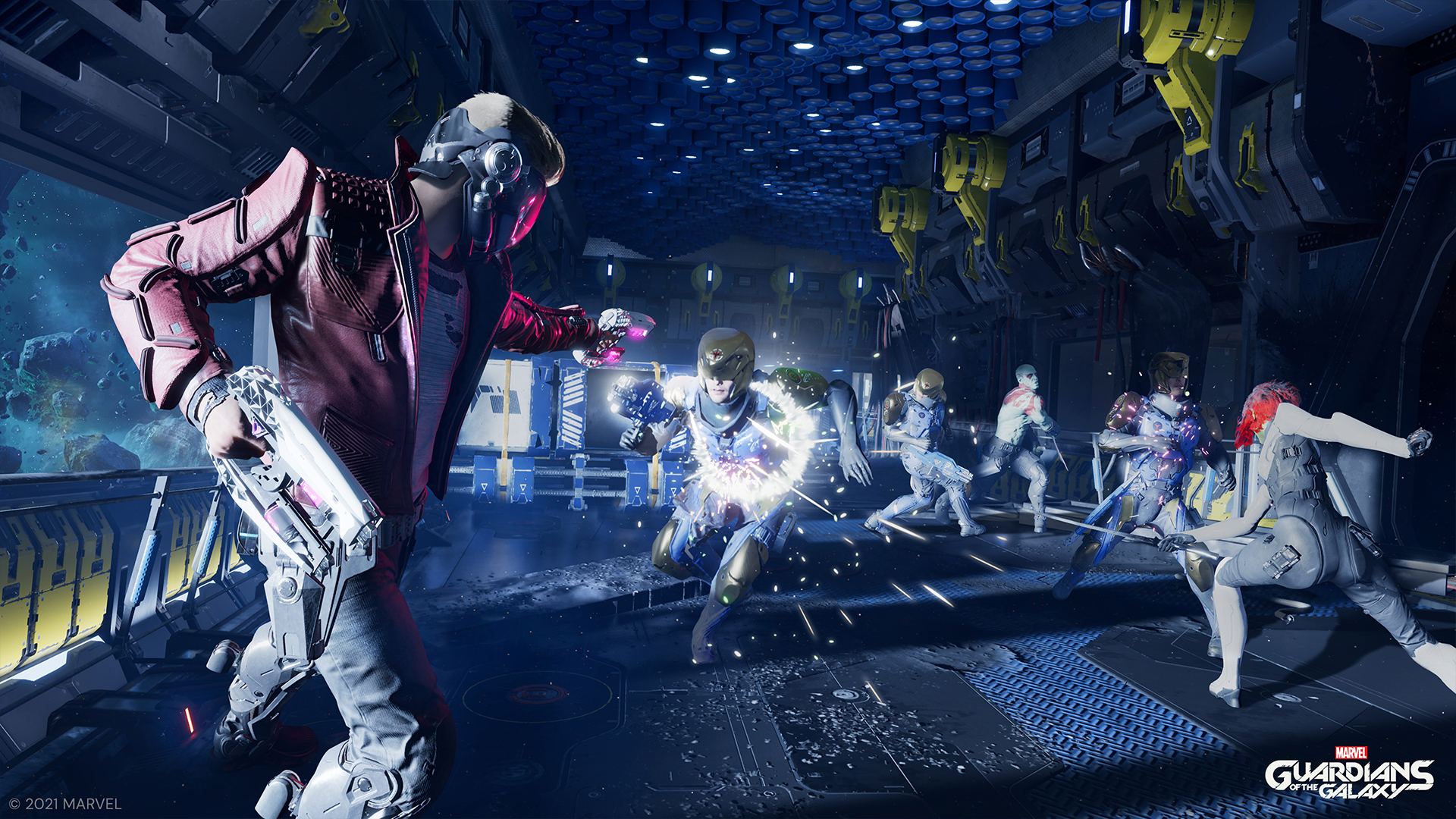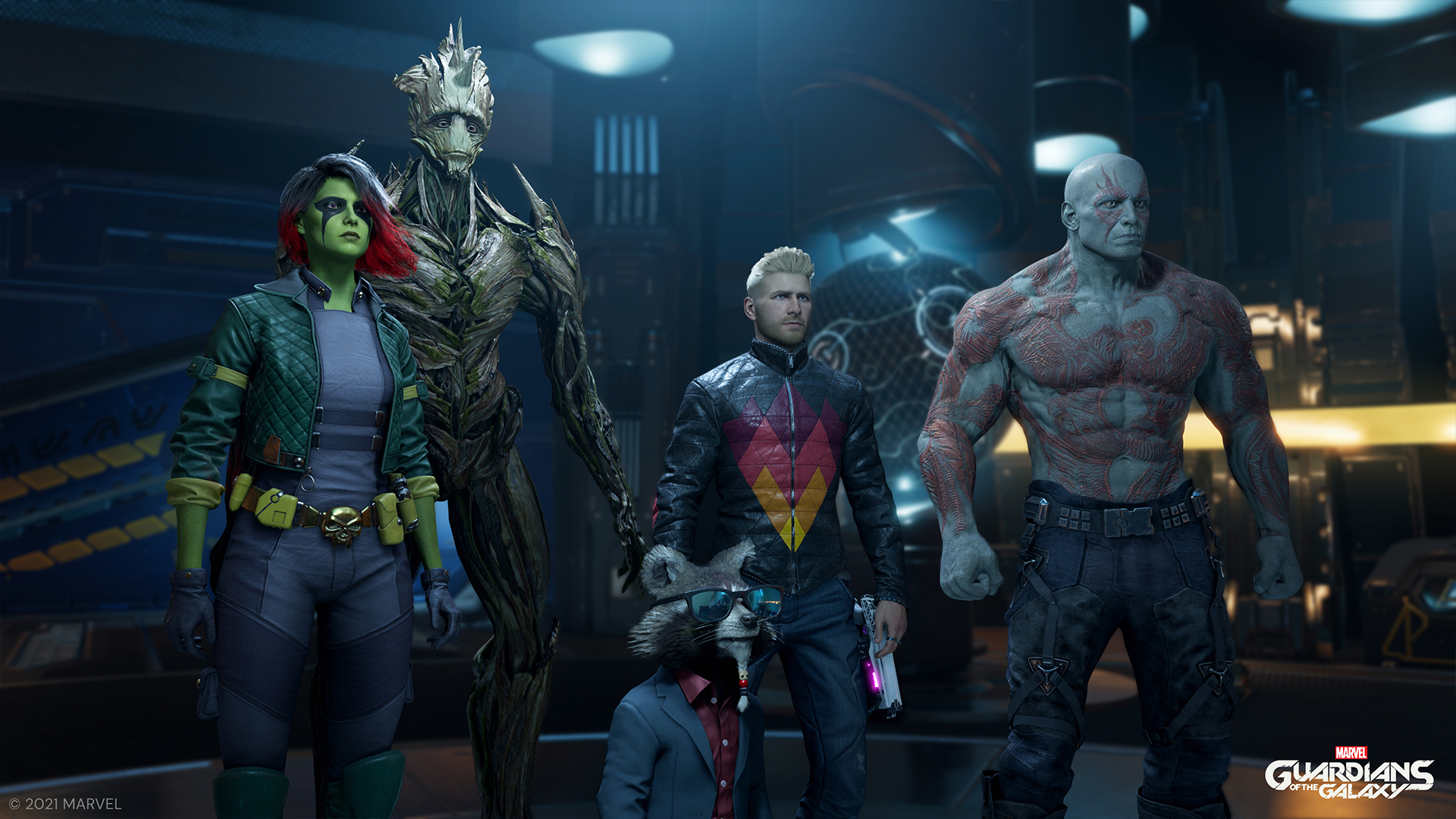Marvel's Guardians of the Galaxy is a reminder that great games don't have to live on forever
A knockout counterpoint to Marvel's Avengers and the live service model

In Marvel's Guardians of the Galaxy, you romp around dangerous, beautifully designed environments, experience an epic story worthy of the MCU, and get to know a gang of colorful and emotionally complex characters, and its climactic ending makes you feel like you've just eaten a hearty, well-balanced meal. And then… well, and then that's it. Developer Eidos-Montreal could announce a sequel, but it doesn't need to. In fact, Marvel's Guardians of the Galaxy doesn't need anything; it's great the way it is.
Fully acknowledging that I know little about monetization models and the like, Marvel's Guardians of the Galaxy is a reminder that great games don't need to live on forever, at least from a player's perspective. It's totally fine for a game to just launch and be enjoyed by people and then go away without constantly adding updates and DLC and ever-changing roadmaps. In fact, I'd wager that the experience of playing this particular game would only depreciate over time if it was always adding new stuff.
Focused Guardians are effective Guardians

Marvel's Guardians of the Galaxy gets just about everything right, and maybe that's because it only attempts a small number of things. The writing is tight and dynamic, with funny banter between the gang offsetting some surprisingly dramatic parts; the puzzles are simple, but satisfying, and beating up goons as Star-Lord with assists from the other Guardians feels weighty and lightly tactical.
If there's one notable flaw – and this could be by design – it's that its core gameplay loop isn't particularly deep. Mostly, you wander around levels fighting off mobs of goons and using your Guardians' unique abilities to overcome obstacles, with a few truly spectacular boss fights offering some variety but ultimately, I think, teasing the limits of what's on offer here. There just aren't enough layers to the foundation to carry multiple expansions – the formula would feel stale. And again, that's perfectly OK. Admirable, even. To me, it shows that Eidos-Montreal had a scope in mind from the beginning and thus crafted an experience that nestles itself perfectly within its boundaries, never breaking ground but competently delivering on its few humble promises.
There's no multiplayer or leaderboards, no microtransactions or character DLC, no time-limited events or raids, and maybe best of all, there's very little jank to work out in future patches – I played on a vanilla Xbox One and aside from deeply grieving the loss of those additional 30 frames you might get when playing games on PS5, I had little complaints about the game's performance. Marvel's Guardians of the Galaxy is an old-school, one-and-done, whole-ass game. And it's bloody brilliant.
Marvel's Guardians of the Galaxy is an old-school, one-and-done, whole-ass game. And it's bloody brilliant.
A superhero counterpoint

Without naming names, I can think of another Square Enix-backed Marvel superhero game from just last year that might've benefited from a more focused, cohesive approach. We all know what game I'm talking about, but I won't call it out specifically because to me, the majority of big budget games suffer from a similar problem to varying degrees: they never end.
There's a bunch of reasons the live-service model is scorned in the gaming community, but the biggest one for me is that it takes away the satisfaction of having beaten something; it robs me of the contentment that allows me to put down the controller and move on to something else. There are enough games in my backlog that I don't need the ones I've already beaten rising from their graves on my shelf and telling me to play more every few weeks. As much as I love Assassin's Creed Valhalla, the 70-hour campaign more than gave me my fill, and while the numerous upcoming expansions sound like they could be fun, I have to be realistic and say I probably won't get around to them if I mean to play anything else next year.
Sign up to the GamesRadar+ Newsletter
Weekly digests, tales from the communities you love, and more
Of course, I'm not naive enough to think my little essay on the virtues of Peacing Out are going to convince developers, publishers, and their investor-pleasing parent companies to abandon their proven financial models. But if I don't give props to Eidos-Montreal for daring to break the mold and deliver a slice of quality, singular, old-school fun, I won't feel like I've done my part to encourage more studios to do the same.
Marvel's Guardians of the Galaxy is such a pleasingly focused experience, and I think that's partly what makes its virtues shine. The story isn't distracted by countless side quests and the ending isn't trivialized by the promise of a massive expansion down the road. There's no choice when you boot up the game but to simply play the campaign, and once you've finished it, either play something else and never think about it again, or replay it for completionist points. Thankfully, there are other games just like it, but as so many AAA studios continue the trend toward live service at an alarming rate, it's particularly refreshing to see such a back-to-basics approach from a major release, and a Marvel game published by Square Enix, no less.
After scoring a degree in English from ASU, I worked as a copy editor while freelancing for places like SFX Magazine, Screen Rant, Game Revolution, and MMORPG on the side. Now, as GamesRadar's west coast Staff Writer, I'm responsible for managing the site's western regional executive branch, AKA my apartment, and writing about whatever horror game I'm too afraid to finish.



